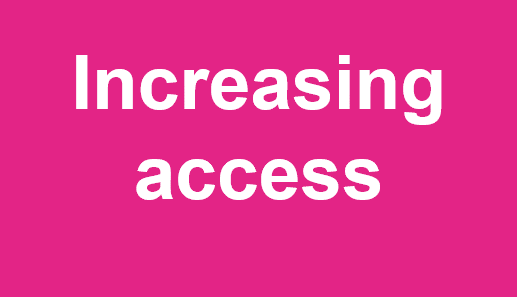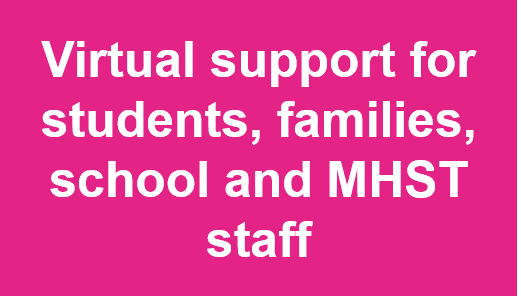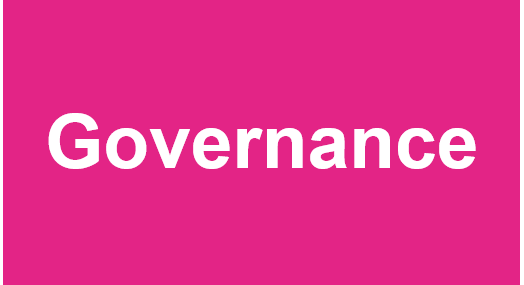Mental health in schools: Positive practice report
Executive summary
London’s programme of Mental Health in Schools Teams (MHSTs) was established in 2017, through a Trailblazer Programme. The teams have remained in place throughout the pandemic, working in different ways to continue to deliver services to young people and their families to support mental health needs.
This report draws together learning from MHSTs’ collective experience, in particular examples of innovation and best practice gained during the periods of lockdown associated with Covid-19, as well as challenges.
Operational and strategic innovations and challenges are described, with many of the experiences common across different areas. Sharing the learning from both will be beneficial to existing teams and those that develop in the future.
A common theme, and one which all areas have focussed on, has been the need to increase access to services – because of the necessity of staying home, and also because Covid-19 itself has increased the need for mental health support. MHSTs have responded to the crisis by vastly increasing their online offering, adapting referral routes and pathways to treatment, and developing new service models. Services have considered the needs of children and young people (CYP), parents and carers, as well as school staff and MHST staff themselves, producing general and Covid-specific resources.
Some areas have focussed on targeting marginalised groups; many have developed a greater awareness of the needs of certain groups – both CYP themselves and their families – who may struggle to access virtual consultations due to digital deprivation, as well as those who face other barriers. A whole-school approach, described by many as a key aim in the work of MHSTs, will continue to be vital in overcoming some of these barriers.
Lockdown has required MHSTs to think differently about ensuring the safety of students and staff and to develop new protocols in relation to delivery of services and assessment of risk. Different methods of engagement have also been employed, and innovations in ways of engaging CYP and families, as well as school staff, have been described by many areas.
The MHST programme is a strong example of joint working across health and education sectors. In addition to the higher education institutions (HEIs) that are integral to the programme, many other partners are involved in the delivery of services through MHSTs across London, both directly, such as the voluntary sector provider Bromley Y, and indirectly, through involvement in MHSTs’ governance arrangements. As elsewhere in the NHS, joint working, and the involvement of the third sector makes a valuable and important contribution to the success of the programme.
There are challenges common to most if not all of the programmes underway in London, and these no doubt will affect future waves of MHSTs. Contractual challenges are described here, alongside significant problems relating to recruitment and retention of staff. Many areas have reported repeatedly advertising posts or losing staff once training is completed. Future waves of funding allocations have been agreed, to ensure that the good work of MHSTs is spread wider across London. There is an opportunity, before these future MHSTs are established, not only to ensure that positive practice is embedded in future practice, but that challenges are addressed so that others do not have to navigate the same difficulties.
Recommendations cover the need to:
- Target specific groups
- Review borough governance to ensure adequate representation
- Ensure a whole school approach
- Use a blended model to deliver services
- Maintain the lockdown innovations
- Form networks of MHSTs across ICS areas
- Share resources
- Revisit the funding and recruitment/retention model
- Ensure effective clinical supervision
- Ensure governance and terms of reference are in place
- Work closely with partners from the voluntary sector
- Consider what can be done to support schools that are not covered by the team
Introduction
Mental Health in Schools Teams (MHSTs) have been in place in London since 2017, with successive waves seeing more successful bids each year.
The Covid-19 pandemic has led to severe disruption to children and young people’s lives, not only in terms of learning and school attendance, but in relation to their social and personal development, support systems and mental wellbeing. Schools were shut to all students, except the children of keyworkers and those with specifical vulnerabilities or additional needs, from March to June/July 2020. They reopened to varying degrees for the latter part of the summer term. Schools have again been closed for much of the spring term in 2021, and they have gradually reopened from early March. In addition, Covid-19 regulations have meant that whole classes or year groups have needed to close with little warning to allow students and teachers to self- isolate.
MHSTs have had a role to play in supporting and maintaining school students’ mental health during these periods of lockdown and isolation. The programme is still relatively young, however, and not all areas have MHSTs in place. This represents an opportunity for a stocktake of positive practice and challenges experienced by the MHSTs that exist across the different areas of London.
This report draws together learning from MHSTs’ collective experience, in particular examples of innovation and best practice gained during the periods of lockdown associated with Covid-19.
It builds on a 2018 survey and report that mapped and described the mental health in schools provision – not necessarily from MHSTs – delivered through local authorities (LAs), mental health trusts and CCGs. That report showed that:
- Most areas showed evidence of a considerable range of activity to support emotional wellbeing and mental health within schools
- The nature of this activity varied considerably within and between boroughs
- Degree of knowledge and awareness of services provided and commissioned by schools varied within CCGs and LAs
- The effectiveness of many initiatives had not been fully evaluated
- There was limited data on numbers of CYP accessing services
This document is divided into themes and details challenges as well as learning that may be relevant beyond individual teams. Some are operational, others are more practice-based.







